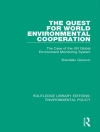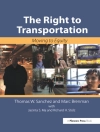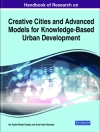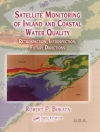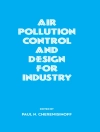This book takes a new and critical look at the underlying factors that affect the management of water resources, and its content is guided by three important visions. With the “theory” vision, the existing knowledge system for IWRM is reorganized in order to supplement new theories related to our society and science. We then introduce two distinctive case studies on how to achieve sustainable water management. Based on the “social implementation” vision, one study is carried out by the Research Institute for Humanity and Nature on Indonesia’s Bali Island, where there is a long history of educational and inspirational local-level water management systems with multistakeholder participation. A further study is based on the “harmony between science and society” vision, and the Ritsumeikan-Global Innovation Research Organization, Ritsumeikan University, proposes innovative water recycling system for the sustainable development of Chongming Island, an eco-island that belongs to China. These two studies highlight “science with society”, a new perspective on science that could promisingly lead to more sustainable futures. This book offers a valuable reference guide for all stakeholders and scholars active in water resources management.
Inhaltsverzeichnis
Preface.- Chapter 1 New Perspectives: Reconsideration of IWRM from the Viewpoint of Design Science.-Chapter 2 Participatory Approaches to Environmental Management: Future Design for Water Resources Management.- Chapter 3 Environmental Assessment in Collaboration with Local Residents.- Chapter 4 Local-level Water Conservation Assessment in the Upstream Watershed Based on Land Use Scenarios.- Chapter 5 A participatory Approach to Enhance Multi-stakeholders’ Participation in the Saba River Basin.- Chapter 6 Hydrogeochemical Assessment of the Contribution of Caldera Lakes and Paddy Irrigation to River Water Stability.- Chapter 7 Reconsideration of the Meaning of Dam Construction for Water Resources Management: the Environmental Impact Assessment of the Titab-Dam Project towards Futurability of the Saba River Basin.- Chapter 8 Current State of Water Management in Chongming Island.- Chapter 9 The Characteristics of Eutrophication and its Correlation with Algae in Chongming Island’s Artificial River Network.- Chapter 10 Impacts of Development on Land Use and the Water Environment.- Chapter 11 Proposal of a New Water Recycling System Featuring “Water Reclamation and Reuse”.- Chapter 12 Conclusions: The Future of Sustainable Water Management.
Über den Autor
Ken’ichi Nakagami, Ph.D., Visiting Professor, Research Institute for Humanity and Nature (RIHN), and Integrated Research System for Sustainability Science, The University of Tokyo; Specially Appointed Professor, College of Policy Science, Ritsumeikan University, 2-150 Iwakura-cho, Ibaraki City, Osaka 567-8570, Japan
Jumpei Kubota, Ph.D., Professor and Project Leader, Research Institute for Humanity and Nature (RIHN), 457-4 Motoyama, Kamigamo, Kita-ku, Kyoto 603-8047, Japan
Budi I. Setiawan, Ph.D., Professor, Faculty of Agricultural Technology, Bogor Agricultural University, Kampus IPB Darmaga, Bogor 16680, Indonesia



